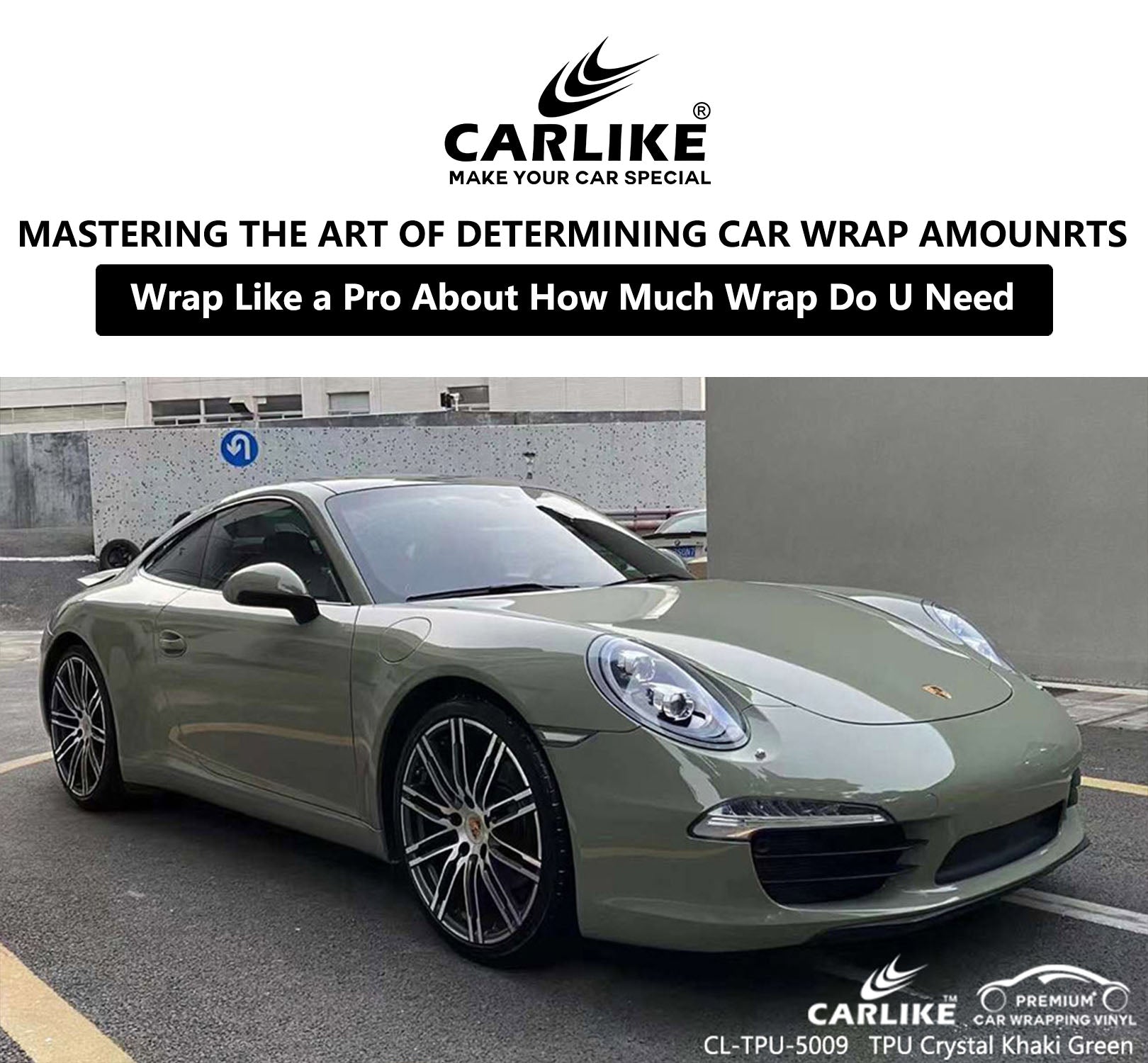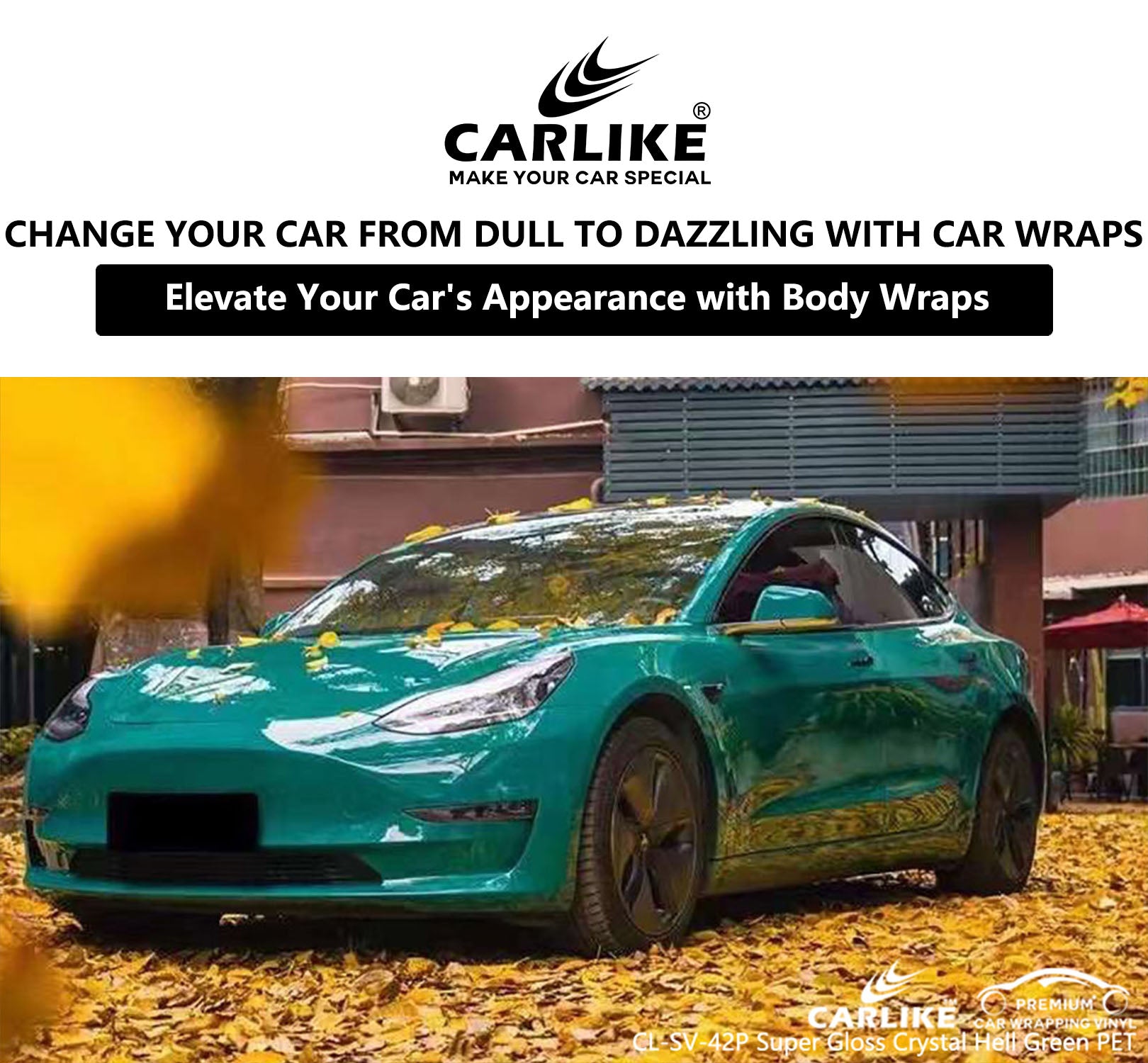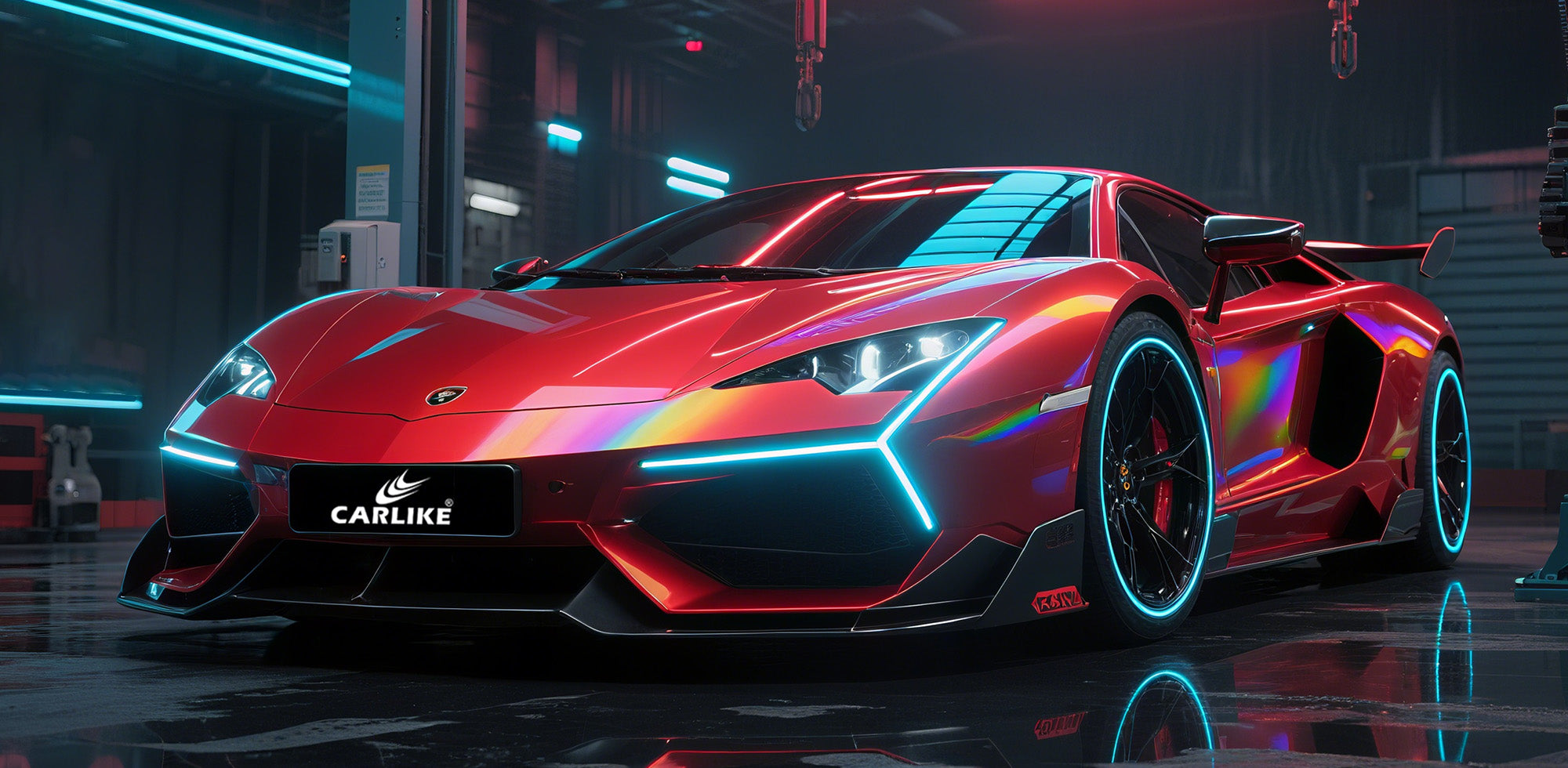Factors Influencing Car Wrap Pricing: What Affects the Cost?
Car wrap pricing is influenced by various factors that can significantly impact the overall cost of the project. Understanding these factors is crucial for car owners who are considering getting their vehicles wrapped and want to have a clear idea of what to expect in terms of pricing.
By exploring the key factors influencing car wrap pricing, individuals can make informed decisions and potentially find ways to optimize their budget without compromising on quality.
1. Vehicle Size and Complexity: The size and complexity of the vehicle play a vital role in determining car wrap pricing. Larger vehicles such as SUVs, vans, and trucks generally require more material and labor to wrap, leading to higher costs compared to smaller cars. Additionally, complex vehicle designs with intricate curves, body contours, or unique features can also increase the overall price as they demand extra time and expertise during the installation process.
2. Material Quality: The type and quality of the wrap material chosen can impact the pricing. Car wraps are available in a range of materials, from basic vinyl to premium options like 3M or Avery Dennison. Higher-quality materials tend to be more expensive, but they often offer better durability, color retention, and overall longevity. The choice of material will depend on personal preference, desired lifespan, and budget constraints.
3. Design Complexity: The complexity of the car wrap design can influence the pricing. Simple designs with solid colors or minimal graphics generally require less time and effort to install, resulting in lower costs. However, intricate designs, custom artwork, or complex patterns may require additional design work and meticulous installation, leading to higher prices.
4. Additional Services: Additional services, such as surface preparation, removal of previous wraps or paint correction, can affect the overall pricing. If the vehicle requires extensive cleaning, priming, or repairs before the installation, these services may be included in the pricing estimate. Similarly, removing an existing wrap or correcting any imperfections in the car's paint can incur extra charges.

5. Labor and Expertise: The labor cost involved in car wrap installation is a significant component of the overall pricing. Highly skilled and experienced installers often charge higher rates due to their expertise and reputation for delivering superior results. It's essential to choose a reputable installation service that employs professionals with the necessary skills and knowledge to ensure a flawless application.
6. Location: Geographic location can also impact car wrap pricing. Costs may vary depending on the region, local market competition, and the overall cost of living. Urban areas or regions with a higher demand for car wraps might have slightly higher prices compared to more rural or less competitive areas.
7. Customization and Add-ons: Additional customization options or add-ons, such as window tinting, paint protection films, or specialty finishes, can increase the overall pricing. These extras provide enhanced aesthetics, protection, or functionality but come at an additional cost.
By considering these factors, car owners can better understand the elements that influence car wrap pricing. It is advisable to reach out to multiple reputable wrap shops, obtain quotes, and compare offerings to ensure a fair price for the desired quality. Remember that while cost is an essential consideration, it's equally important to prioritize the expertise and reputation of the installation service to ensure a satisfactory and long-lasting car wrap.
Understanding Car Wrap Material Costs: Which is the Best Value?
When considering a car wrap, one of the crucial factors that can significantly impact the overall cost is the choice of wrap material. Car wrap materials vary in terms of quality, durability, appearance, and price. It's essential for car owners to understand the different types of wrap materials available and evaluate their value in order to make an informed decision that balances budget and long-term satisfaction.
1. Basic Vinyl: Basic vinyl wrap materials are the most affordable option available in the market. While they offer a lower price point, they also tend to have a shorter lifespan and may not withstand harsh weather conditions or UV exposure as well as higher-quality materials. Basic vinyl wraps are suitable for short-term applications or temporary changes in appearance, but they may require more frequent replacements in the long run.
2. Intermediate Vinyl: Intermediate vinyl wraps strike a balance between cost and quality. They offer better durability, UV resistance, and color retention compared to basic vinyl options. Intermediate vinyl materials often come in a wide range of colors and finishes, providing car owners with more customization options. They are a popular choice for individuals seeking a balance between affordability and longevity.
3. Premium Vinyl: Premium vinyl wrap materials, such as those offered by reputable brands like 3M or Avery Dennison, are known for their exceptional quality, longevity, and performance. These materials are engineered to withstand prolonged exposure to UV rays, harsh weather conditions, and minor abrasions. They typically offer enhanced color vibrancy, greater conformability to complex vehicle curves, and better adhesive properties. While premium vinyl wraps come with a higher price tag, they often deliver superior results and longer lifespan, making them a worthwhile investment for those seeking top-tier quality.

4. Specialty Wraps: Specialty wraps include materials with unique finishes like chrome, brushed metal, carbon fiber, or matte colors. These wraps are typically more expensive than standard vinyl options due to their specialized aesthetics and additional manufacturing processes. Specialty wraps are favored by car enthusiasts or individuals looking to make a bold statement with their vehicle's appearance. However, it's important to note that these materials may require more maintenance and can be more challenging to repair if damaged.
When determining the best value in car wrap material, it's crucial to consider individual preferences, budget constraints, and the intended duration of the wrap. While basic vinyl may be suitable for short-term use or temporary advertising purposes, investing in a higher-quality material like intermediate or premium vinyl can offer better longevity, color retention, and overall satisfaction.
It is advisable to consult with professional wrap installers who can provide expert advice on the available options, their respective benefits, and potential drawbacks. They can assess the specific needs of the vehicle, desired aesthetics, and the environment in which the vehicle will be used to recommend the most appropriate wrap material that strikes a balance between cost and value.
Ultimately, finding the best value in car wrap material involves considering the desired lifespan, quality expectations, and available budget to make an informed decision that ensures both satisfaction and longevity for the car wrap.
Hidden Costs of Car Wrap Installation: Don't Get Caught Off Guard
Understanding these hidden costs is crucial to avoid unexpected surprises and to plan the budget effectively. By being well-informed, car owners can ensure a smooth and transparent experience when getting their vehicle wrapped.
1. Surface Preparation: One hidden cost that can catch car owners off guard is the surface preparation required before the installation. Depending on the condition of the vehicle's paint, it may need cleaning, polishing, or even minor repairs to ensure a smooth and flawless wrap application. Surface preparation costs can vary based on the extent of the work needed, and it's important to discuss this with the wrap installer beforehand.
2. Removal of Previous Wrap or Paint Correction: If the vehicle already has a wrap or any existing graphics, there may be additional costs associated with its removal. Removing an old wrap can be time-consuming and may require special tools or solvents, which can increase the overall cost. Similarly, if the car's paint has imperfections like scratches or swirl marks, paint correction may be necessary to achieve the desired finish. These additional steps should be discussed with the installer to avoid unexpected expenses.
3. Customization and Graphic Design: While basic car wrap designs may be included in the initial price quote, any customization or complex graphic design work can incur extra costs. Intricate artwork, custom logos, or specific branding elements may require additional time and design expertise. It's important to communicate your design requirements clearly with the wrap installer to get an accurate estimate of any additional charges.

4. Removal and Reinstallation of Vehicle Parts: In some cases, certain vehicle parts or accessories may need to be temporarily removed during the wrap installation process. This can include side mirrors, door handles, emblems, or trim pieces. While it may be necessary for a seamless wrap application, there could be additional labor costs involved in removing and reinstalling these components.
5. Post-Installation Care and Maintenance: It's crucial to consider the long-term care and maintenance of the car wrap. While it's not a direct hidden cost, car owners should be aware that improper care or neglecting maintenance recommendations can lead to premature deterioration of the wrap. This could result in the need for early replacement or repair, which would incur additional costs down the line. Therefore, understanding the recommended care instructions and budgeting for proper maintenance products is important.
To avoid being caught off guard by hidden costs, it's recommended to have open and transparent communication with the chosen wrap installer. Discuss your expectations, any existing conditions of the vehicle, and your desired customization options upfront. Request a detailed breakdown of the costs involved, including any potential hidden costs that may arise during the installation process. Obtaining multiple quotes from reputable wrap installers can also help in comparing prices and ensuring a fair and comprehensive estimate.
By being aware of the potential hidden costs associated with car wrap installation, car owners can effectively plan their budget and have a more transparent and stress-free experience. Remember, investing in quality materials, professional installation, and proper maintenance will contribute to the longevity and satisfaction of your car wrap.
Car Wrap Pricing by Vehicle Size: Small Cars vs. SUVs and Trucks
When it comes to car wrap pricing, one significant factor that can influence the cost is the size of the vehicle. The size of the vehicle plays a crucial role in determining the amount of material required, the complexity of the installation process, and the overall labor involved. Understanding how car wrap pricing varies between small cars, SUVs, and trucks can help car owners anticipate costs and make informed decisions.
1. Material Cost: One of the primary factors contributing to the pricing difference between small cars, SUVs, and trucks is the amount of wrap material needed. Larger vehicles naturally require more material to cover the surface area. SUVs and trucks have larger body panels, more windows, and often additional design elements, such as side steps or roof racks, which increase the overall material requirements compared to smaller cars. Consequently, the material cost for wrapping an SUV or truck tends to be higher than that for a small car.
2. Labor Intensity: The labor required for installing a car wrap also varies depending on the size and complexity of the vehicle. Larger vehicles like SUVs and trucks typically have more extensive and intricate body contours, which can make the installation process more time-consuming and challenging. Wrapping a small car generally requires less labor due to its simpler shape and fewer curves. The additional labor involved in wrapping SUVs and trucks contributes to the higher pricing for these vehicles.
3. Time Commitment: The time required to complete the installation of a car wrap correlates with the vehicle's size. The intricate nature of wrapping larger vehicles means that the installation process for SUVs and trucks is generally longer compared to small cars. Installers need to allocate more time for precise trimming, positioning, and heat application to ensure a seamless and professional finish. As a result, the higher time commitment involved in wrapping larger vehicles contributes to the higher pricing.

4. Design Considerations: While vehicle size primarily influences the amount of material and labor required, the complexity of the design chosen can also affect the overall cost. If a small car and an SUV or truck have identical designs, the pricing difference will primarily stem from the size-related factors mentioned above. However, if the design for larger vehicles includes more intricate patterns, custom graphics, or detailed artwork, it may incur additional design and labor costs compared to a simpler design for a small car.
It's important for car owners to keep these factors in mind when considering car wrap pricing based on vehicle size. It's advisable to reach out to reputable wrap installers who can provide accurate estimates based on the specific dimensions and requirements of your vehicle. Requesting multiple quotes from different installers will help you compare pricing and services to ensure a fair and competitive offer.
While the cost may be higher for wrapping SUVs and trucks compared to small cars, it's essential to consider the benefits of a car wrap, such as protection, customization, and visual appeal. Investing in a high-quality wrap and professional installation can enhance the aesthetics of any vehicle, regardless of its size. Ultimately, car wrap pricing by vehicle size reflects the additional material, labor, and time involved in transforming and wrapping larger vehicles.
FAQ for car wrap pricing?
Q: How much does a car wrap typically cost?
A: The cost of a car wrap can vary depending on several factors such as the size of the vehicle, the type of material used, the complexity of the design, and the labor involved. On average, a basic car wrap can range from $1,500 to $3,000, while a full-coverage or custom wrap can cost between $3,000 and $6,000 or more.
Q: What factors influence the price of a car wrap?
A: The price of a car wrap is influenced by factors like the size of the vehicle, the type and quality of the wrap material, the complexity of the design, additional services like surface preparation or paint correction, and the labor involved in the installation.
Q: Is it cheaper to wrap a small car compared to an SUV or truck?
A: Yes, generally speaking, it is cheaper to wrap a small car compared to larger vehicles like SUVs or trucks. Smaller cars require less material and labor, making the overall cost lower.
Q: Are there any additional costs involved in getting a car wrap?
A: Yes, there may be additional costs involved in getting a car wrap. These can include surface preparation, removal of previous wraps or graphics, customization options, design fees, or the removal and reinstallation of vehicle parts. It's important to discuss these potential additional costs with the wrap installer before committing to the project.
Q: Can I install a car wrap myself to save money?
A: While it is possible to install a car wrap yourself, it requires a high level of skill and experience to achieve professional results. DIY installations can often lead to subpar outcomes, which may end up costing more in the long run due to the need for redoing or repairing the wrap. It's recommended to have a professional wrap installer handle the installation for the best results.
Final Words
In conclusion, understanding the intricacies of car wrap pricing is essential for car owners looking to transform their vehicles with this popular customization option. By delving into the factors that influence car wrap pricing, such as vehicle size, material costs, design considerations, and hidden expenses, you can navigate the process with confidence. Remember, investing in high-quality materials, professional installation, and proper maintenance will contribute to the longevity and satisfaction of your car wrap.
Whether you're seeking a budget-friendly option or aiming for top-tier quality, collaborating with reputable wrap installers and seeking multiple quotes will help you make an informed decision. Unlock the secrets of car wrap pricing, and embark on your journey to a stunning and personalized vehicle transformation.









